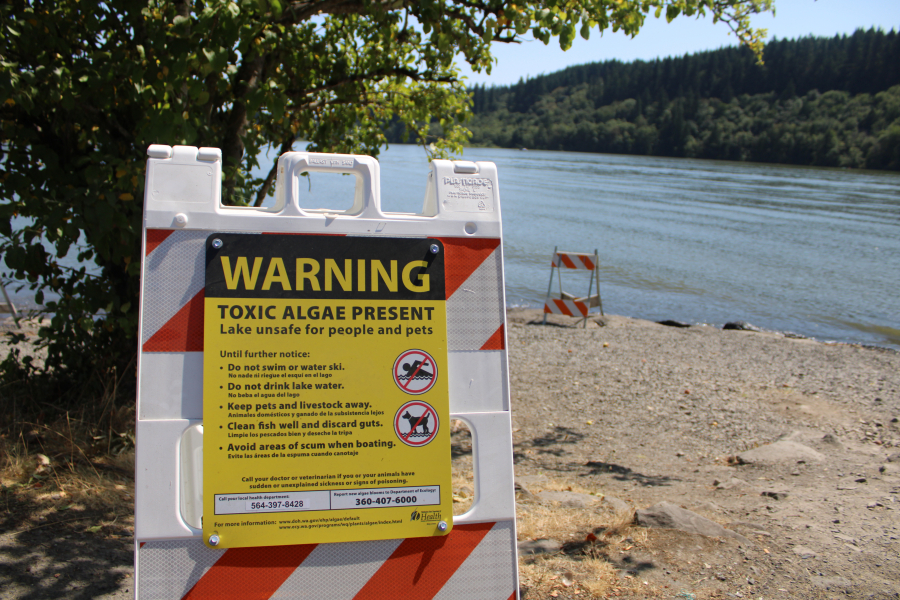Clark County Public Health is warning Lacamas Lake users that elevated levels of cyanotoxins from harmful algae have been found in the Camas lake.
Public Health reported this week that water samples collected Monday, July 1, showed “cyanotoxins above the threshold levels recommended by the Washington Department of Health.”
The county has posted warning signs at public access points around the lake to remind people that cyanotoxins can be harmful, especially young children, and can be deadly for small pets that drink the water.
During the public health warning, county officials recommend people avoid swimming and water skiing in the lake; keeping animals away from the lake water; avoiding areas with scum while boating, kayaking, canoeing or paddle boarding on the lake; avoiding drinking the lake water; and making sure to thoroughly clean fish caught in the lake.
The county will monitor the lake and will take weekly water samples during the toxic algal bloom.





